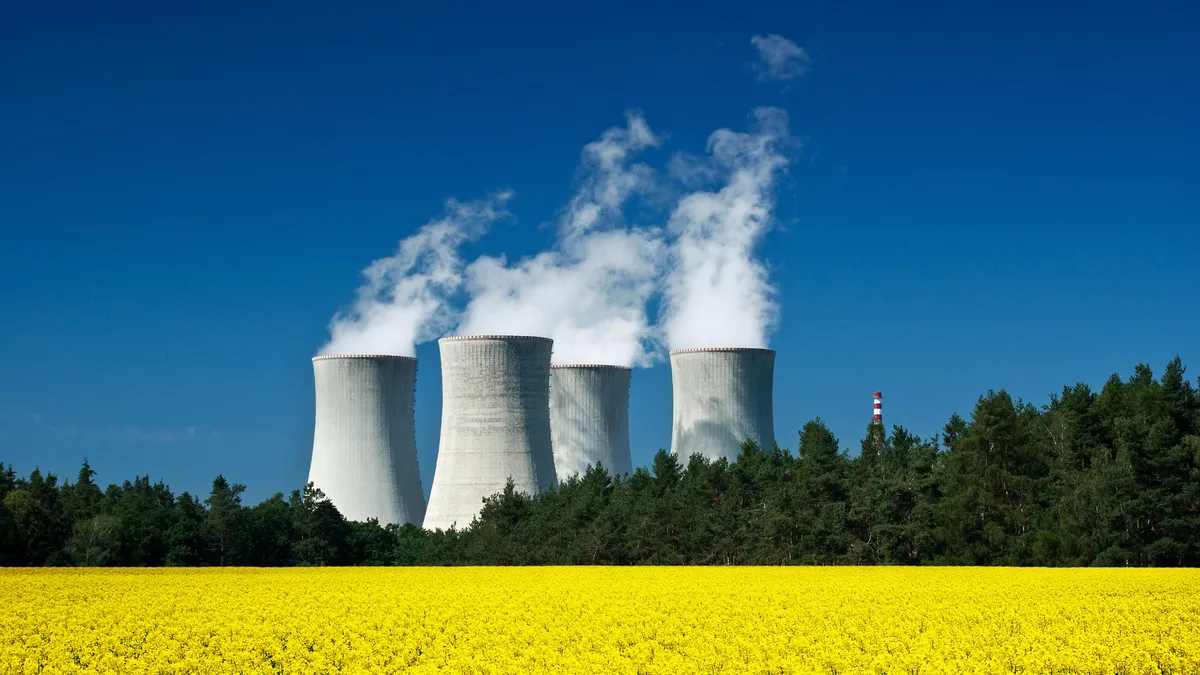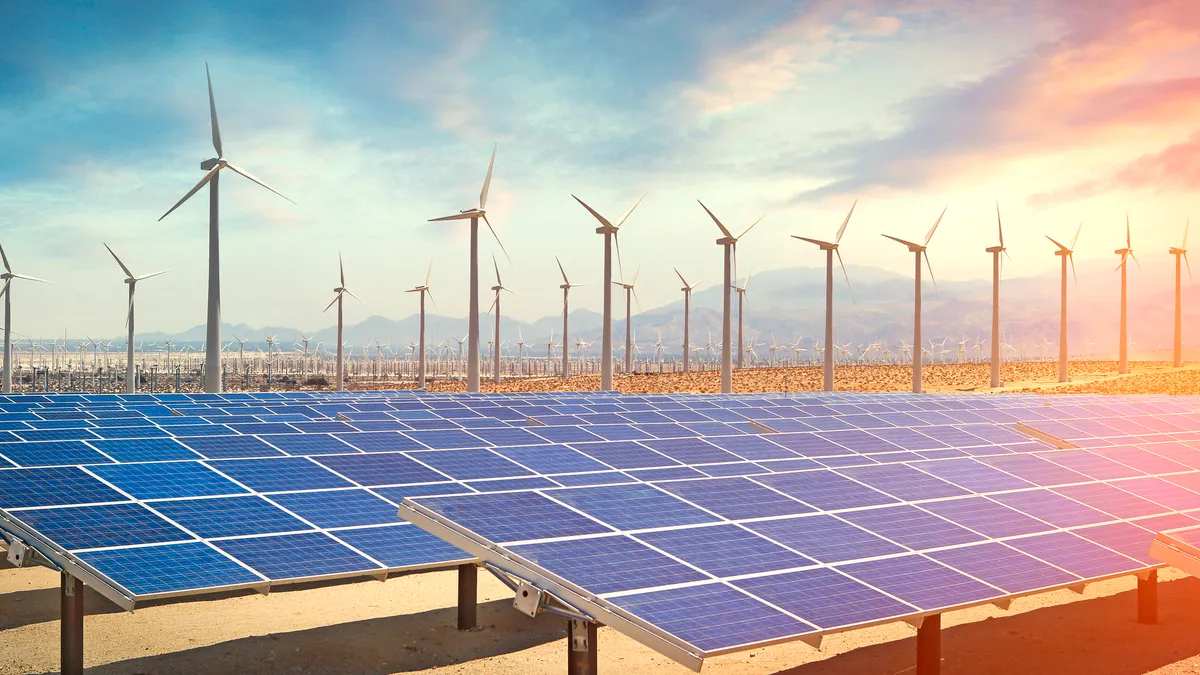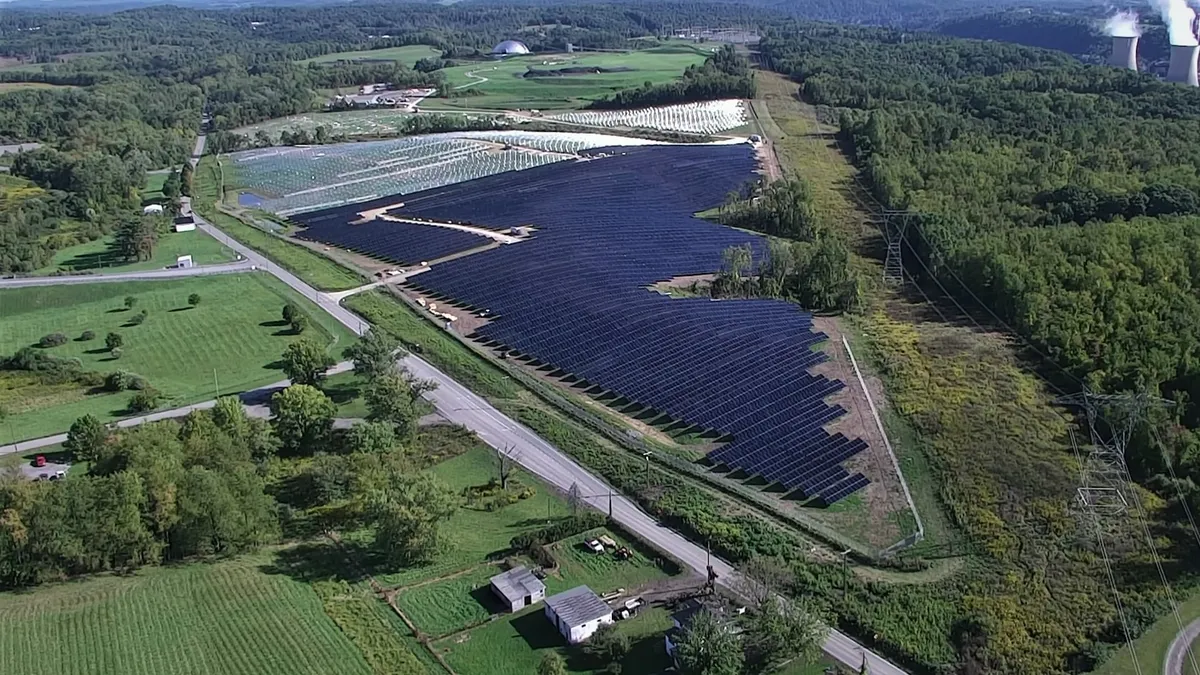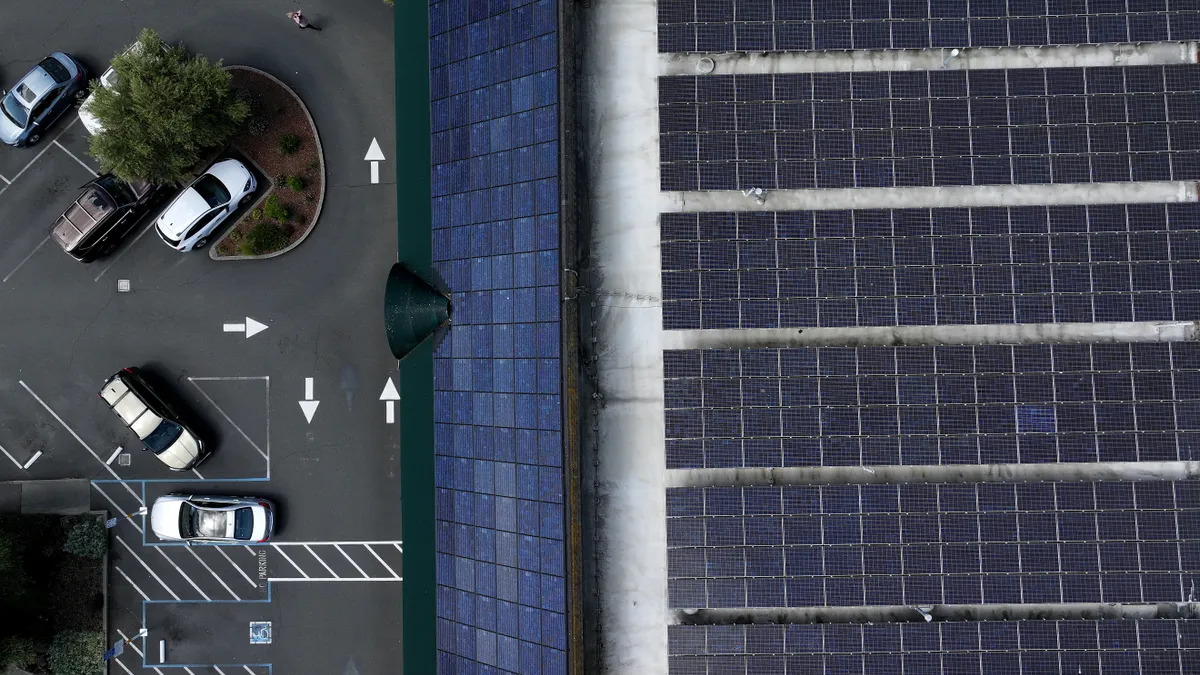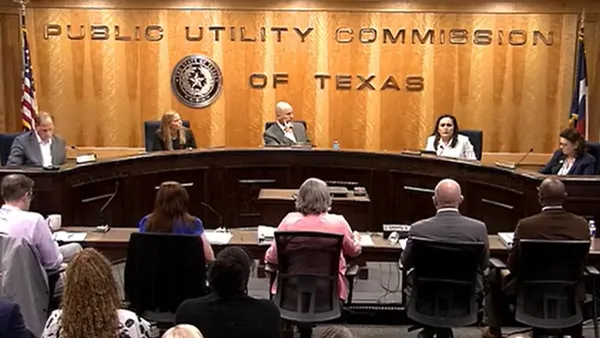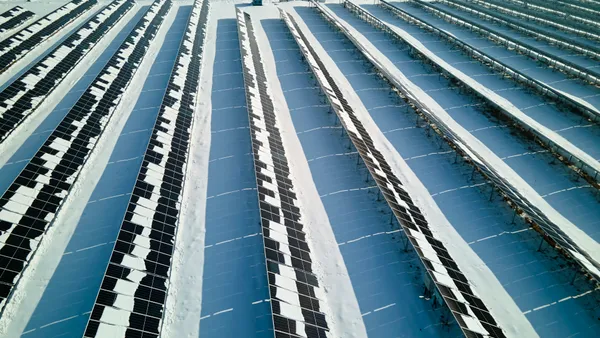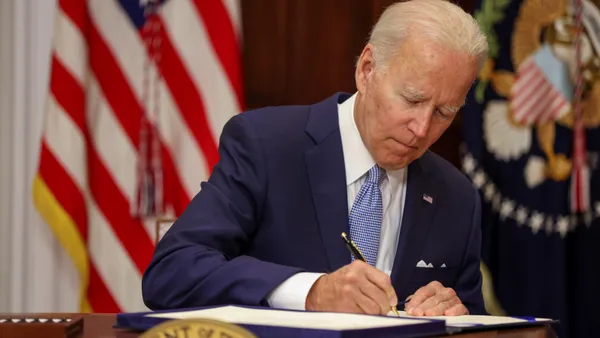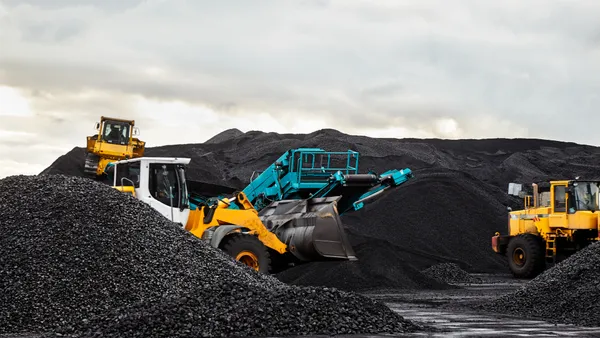Dive Brief:
- American support for nuclear power has declined in recent years and now sits at 51%, the lowest level since 2001, according to a new survey from Gallup.
- Interest in nuclear energy peaked in 2010, when President Barack Obama backed construction of two new facilities through federal loan guarantees, but has fallen steadily in the wake of Japan's Fukushima disaster in 2011, Greentech Media reports.
- In a separate survey question Americans were least likely to say the government should put "more emphasis" on coal power, while solar and wind proved most popular. In 2014, the U.S. power sector got about 20% of its energy from nuclear power and about 40% from coal, according to EIA data.
Dive Insight:
Just five years ago support for nuclear power reached 62%, buoyed by announcements that the United States would construct two new facilities after a three-decade hiatus. But a new poll from Gallup shows support has plunged, largely in the wake of Japan's Fukushima disaster but also as renewable energy sources have become more prominent and popular.
According to Gallup, more than a third of Americans believe a greater emphasis on nuclear power should be pursued, while most say want a greater focus on solar, wind and natural gas.
It also appears that solar energy is now the country's favorite type of energy, with 79% saying they want a greater focus on the renewable source. Wind power comes in second, with 70% favoring a greater focus. The survey showed Americans have the lowest support for coal.
Interest in natural gas also appears to be waning, Gallup found. Numbers of those who say they want a greater focus on gas have declined 10 percentage points since the last survey in 2013, and now stands around 55%.
Last year the U.S. Nuclear Regulatory Commission began renewing nuclear operating licenses, ending a two-year hiatus from issuing licenses. The NRC has granted license renewals providing a 20-year extension to a total of 74 of the 100 operating reactors in the United States.



